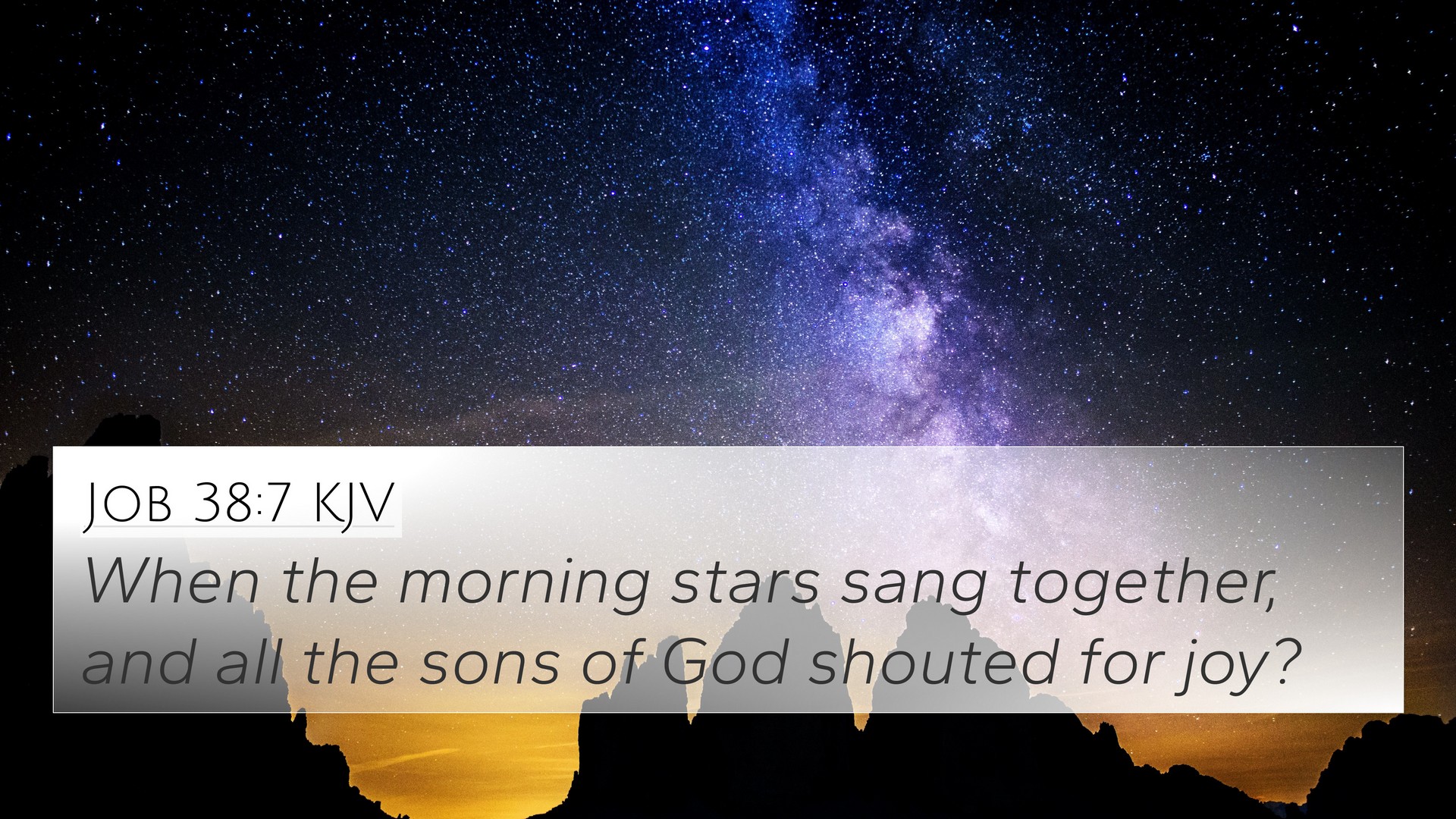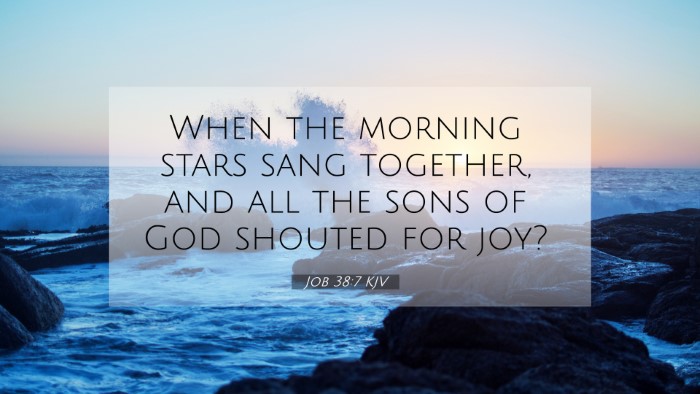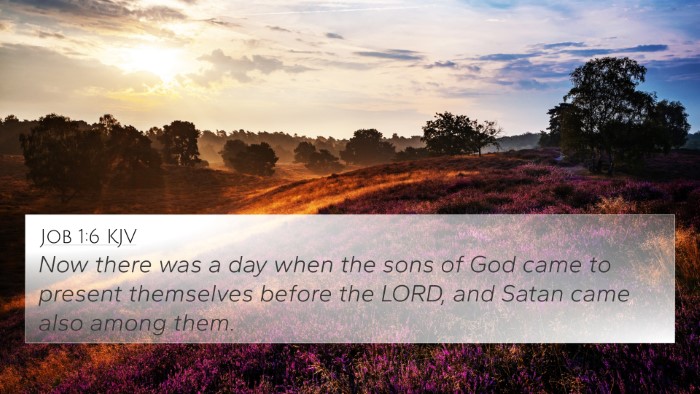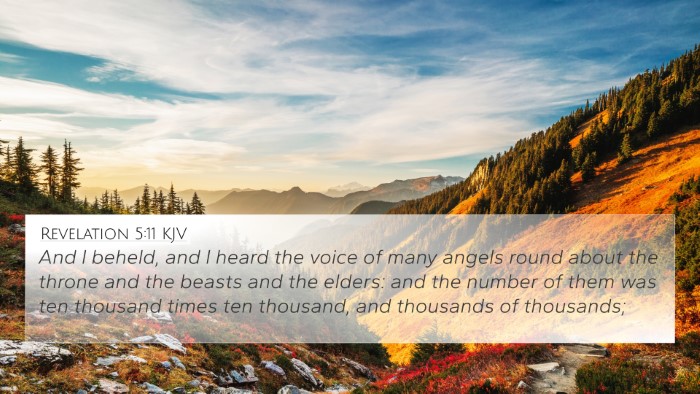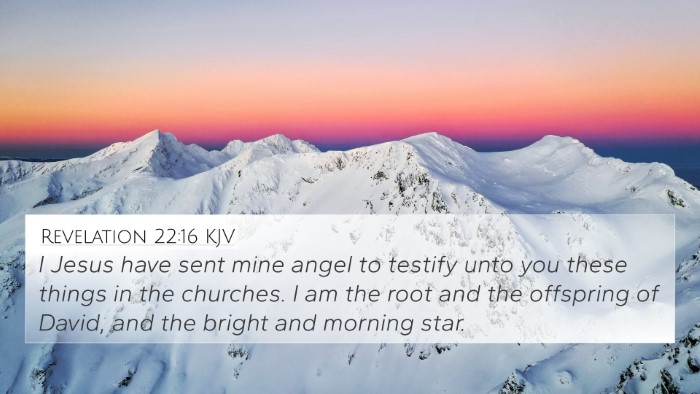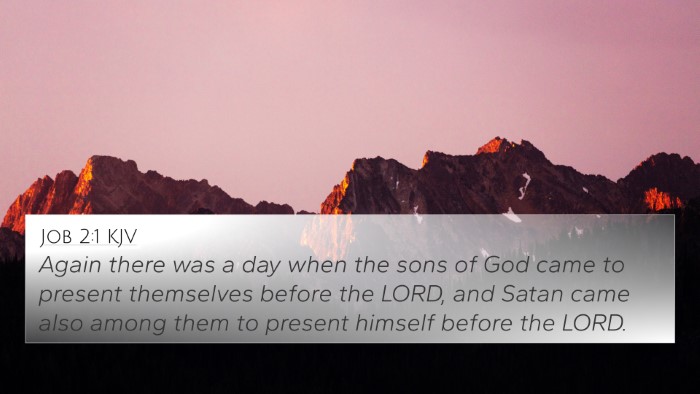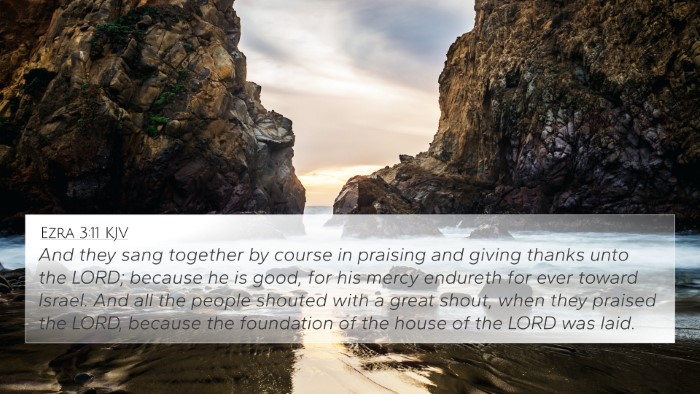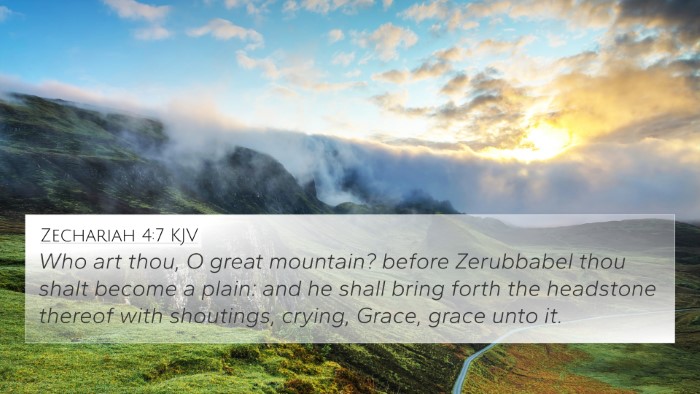Understanding Job 38:7
Job 38:7 states, "When the morning stars sang together, and all the sons of God shouted for joy?" This verse occurs in the context of God speaking to Job out of the whirlwind, presenting His creation and sovereignty. This passage is laden with profound theological implications, reflecting on God's majesty and the celebration of creation.
Contextual Background
The Book of Job addresses the themes of suffering, divine justice, and the nature of God. After enduring immense suffering and loss, Job questions God's governance of the universe. In Job 38, God responds not with a direct answer to Job’s questions, but with a series of rhetorical questions that highlight His omnipotence and the intricacies of creation.
Theological Insights
Matthew Henry's Commentary notes that this verse signifies the joy that creation experienced at its inception. The "morning stars" and "sons of God" indicate celestial beings praising God, emphasizing the harmony and order in the universe that God initiated.
Albert Barnes emphasizes that these "morning stars" symbolize angels or divine beings who rejoiced in God's creative work, suggesting their awareness of God's glory and majesty as He established the foundation of the earth. This reflects a pre-existent joy in God's creation.
Adam Clarke interprets this verse as a poetic expression of joy among celestial beings, indicating that the creation of the world was not just a mundane event, but one that involved jubilant participation from the heavenly hosts. This aligns with the broader Biblical theme of creation being good and celebrated (see Genesis 1:31).
Related Bible Cross-References
- Genesis 1:31: "And God saw that everything that he had made, and behold, it was very good."
- Psalms 148:1-5: "Praise ye the Lord. Praise ye the Lord from the heavens: praise him in the heights."
- Isaiah 14:12-15: This passage describes the fall of Lucifer, who is associated with the morning star, reflecting on the authority of God over His creation and the rebellion of created beings.
- Revelation 12:4: The verse discusses the dragon's tail sweeping a third of the stars from heaven, indicative of the cosmic battle between good and evil.
- Psalms 19:1: "The heavens declare the glory of God; and the firmament sheweth his handywork."
- Ephesians 6:12: "For we wrestle not against flesh and blood, but against principalities, against powers, against the rulers of the darkness of this world, against spiritual wickedness in high places."
- Colossians 1:16: "For by him were all things created, that are in heaven, and that are in earth, visible and invisible, whether they be thrones, or dominions, or principalities, or powers: all things were created by him, and for him."
- Job 38:4: "Where wast thou when I laid the foundations of the earth? declare, if thou hast understanding."
- Job 1:6: "Now there was a day when the sons of God came to present themselves before the Lord, and Satan came also among them."
- Luke 2:13: "And suddenly there was with the angel a multitude of the heavenly host praising God."
Comparative Bible Verse Analysis
In connecting Job 38:7 with other scriptures, we see thematic elements of creation and divine authority reflected throughout the Bible. The joyous reaction of the celestial beings can also be likened to the celebratory nature of worship in Psalms 148, where all aspects of creation are called to praise the Creator.
The inter-Biblical dialogue emphasizes that joy in God's creation was not limited to the act of creation itself, but extends to how celestial beings interact with humanity and their ongoing worship of God.
Thematic Bible Verse Connections
This verse invites deeper reflection on themes surrounding creation, divine majesty, and the response of celestial beings. By utilizing tools for Bible cross-referencing, one can delve into these interconnected themes, enhancing the understanding of God's relationship with His creation.
Conclusion
Job 38:7 invites readers into a profound meditation on the nature of God's creation and the celestial celebration that accompanied it. Through careful study of cross-references and thematic connections, believers can better appreciate the grandeur of God's work and the joy it inspired among the heavenly hosts. This verse serves as a reminder of our place within this magnificent creation, encouraging a posture of humility and praise toward the Creator.
